
BY DR. RAVINDER PALL SAINI,
INDIAN FOREST SERVICE (RETIRED)
MEMBER ( BOARD OF MANAGEMENT),
FOREST RESEARCH UNIVERSITY,
DEHRADUN.
DEHRADUN, 20 MAY 2023:
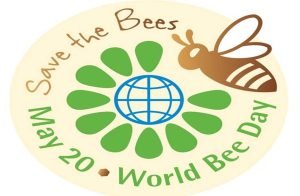
World Bee Day is celebrated on May 20. On this day Anton Janša, the pioneer of beekeeping, was born in 1734. The purpose of the international day is to acknowledge the role of bees and other pollinators for the ecosystem.
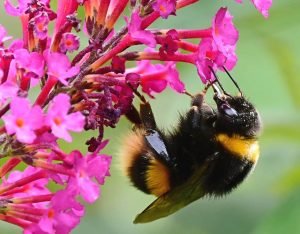
Bees are under threat. Present species extinction rates are 100 to 1,000 times higher than normal due to human impacts. Close to 35 percent of invertebrate pollinators, particularly bees and butterflies, and about 17 percent of vertebrate pollinators, such as bats, face extinction globally. (Source: UN).
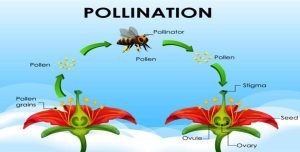
Most pollinator species are wild, including more than 20,000 species of bees. Close to 75 percent of the world’s crops producing fruits and seeds for human use depend, at least in part, on pollinators. Our food security, nutrition and the health of our environment depend on bees and pollinators. Pollinators contribute to 35 percent of the world’s total crop production, pollinating 87 of 115 leading food crops worldwide. In many areas, bees, pollinators, and many other insects are declining in abundance and diversity. Everyone can make a difference to support, restore and enhance the role of bees and pollinators. (Source FAO).
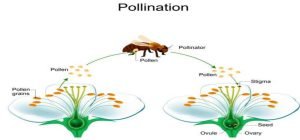
Concentrated farming practices, land-use change, mono-cropping, pesticides, and higher temperatures correlated with climate change all present problems for bee populations and, by expansion, the quality of food we grow.
If this trend of decline in population of pollinators continues, nutritious crops, such as fruits, nuts and many vegetable crops will be substituted increasingly by staple crops like rice, corn, and potatoes, eventually resulting in an imbalanced diet.
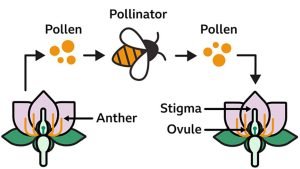
We all are fundamentally dependent on bee pollinators, and it is, therefore, imperative to monitor their regression and stop the loss of biodiversity.
Process of Pollination-
Insects like bees, butterflies, wasps etc. play a key role in helping flowering plants to reproduce. For plants to make seeds, pollen must get from one plant to another. This process is called pollination. Powdery pollen is stored in a part of the flower called the anther. Bees are fascinated by flowers for their nectar. When they visit, pollen from the anther sticks to them and they carry it away. When a bee lands on another plant the pollen rubs off on a part of the flower called then the stigma. This initiates fertilization and formation of fruit and seeds.
Bees are one of the most effective pollinators out there because they visit lots of plants and carry more pollen between them. In the UK, around 70 crops benefit from visits by bees – for example, broccoli, cabbages, and apples.
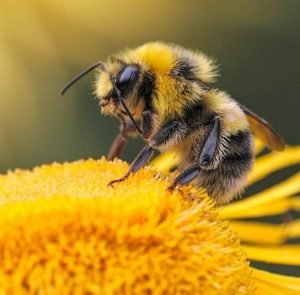
Survival of Bees’ Present-Day Necessity-
Bees apart from other pollinators, such as butterflies, bats, and hummingbirds, are
progressively under danger from human interests.
Pollination has a positive impact on the environment in general, helping to maintain biodiversity and the vibrant ecosystems upon which agriculture and humanity depend. A wide variety of plants critical to human well-being and livelihoods require pollinators. In fact, bees and other pollinators provide the important ecosystem service of ensuring out-crossing (that is, crossing genes) and, thus, reproduction of many cultivated and wild plants.
Pollination is, however, a vital process for the existence of our ecosystems. Nearly 90% of the world’s wild flowering plant species are governed almost on animal pollination, along with more than 75% of the world’s food crops and 35% of global agricultural land.
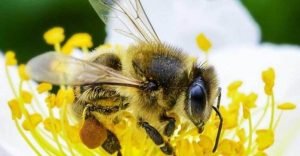
Not only do pollinators add directly to food security, but they are vital to conserving biodiversity.
To create perception of the great significance of pollinators, the threats they face and their involvement to sustainable development, the UN designated 20 May as World Bee Day. The goal is to reinforce actions for protecting bees and other pollinators, which would substantially contribute to resolution of problems associated to the global food supply and reduce hunger in developing countries.
Efforts For Bee Conservation-
Accepting the dimensions of the pollination catastrophe and its links to biodiversity and human livelihoods, the Convention on Biological Diversity has made the conservation and sustainable use of pollinators a priority. In 2000, the International Pollinator Initiative (IPI) was established (COP decision V/5, section II) at the Fifth Conference of Parties (COP V) as a cross-cutting initiative to promote the sustainable use of pollinators in agriculture and related ecosystems. Its main goals are monitoring pollinators’ decline, addressing the lack of taxonomic information on pollinators, assessing the economic value of pollination and the economic impact of the decline of pollination services and protect pollinator diversity.
Along with coordinating the International Pollinator Initiative (IPI), the FAO also provides technical assistance to countries on issues ranging from queen breeding to artificial insemination to sustainable solutions for honey production and export marketing.
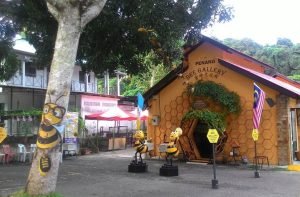
Initiatives For The Protection of Pollinators-
Bees and other pollinators are ultimate for the health of ecosystems and food security. They help conserve biodiversity and safeguard the production of nutritious food. However, concentrated monoculture production and improper use of pesticides pose serious threats to pollinators by reducing their access to food and nesting sites, exposing them to harmful chemicals, and weakening their immune systems.
Under the theme “Bee engaged in pollinator-friendly agricultural production”, World Bee Day 2023 calls for global action to support pollinator-friendly agricultural production and highlights the importance of protecting bees and other pollinators, particularly through evidence-based agricultural production practices.
The following initiatives would help bee pollinators conservation and survival for our benefit.
- i) Planting a diverse set of native plants, which flower at different times of the year; to facilitate bees’ habits and habitat niches.
- ii) Supporting local farmers and villagers by buying raw honey from them and involving them in protection and conservation efforts for bees.
iii) Avoiding irrational use of pesticides, fungicides, or herbicides in our gardens.
- iv) Protecting wild bee colonies when and wherever possible with the help of local communities.
Efforts required:
- Discretely:
- i) By planting a diverse set of native plants, which flower at different times of the year.
- ii) By buying raw honey from local farmers.
iii) By buying products from sustainable agricultural practices.
- iv) By helping sustain forest ecosystems.
- v) By raising awareness around us by sharing this information within our
communities and groups.
- By governments and decision-makers by.
- i) By strengthening the participation of local communities in decision-
making, that of indigenous people, who know and respect ecosystems
and biodiversity.
- ii) By enforcing strategic measures, including monetary incentives to help
change.
iii) By increasing collaboration between national and international
organizations, organizations, and academic and research networks to monitor and evaluate pollination services.

Advertisement:
















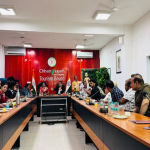



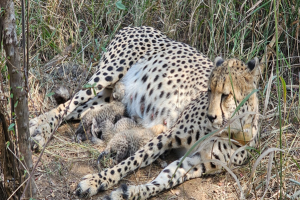
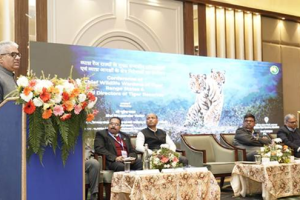








Add Comment